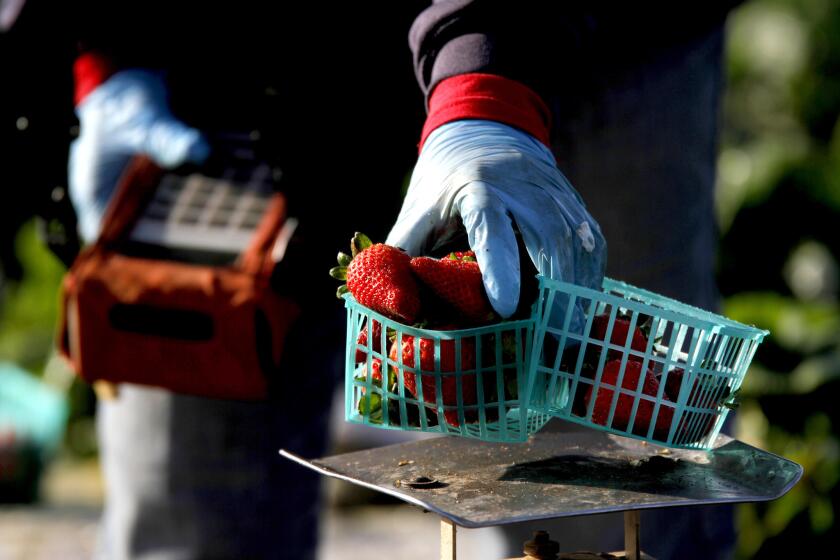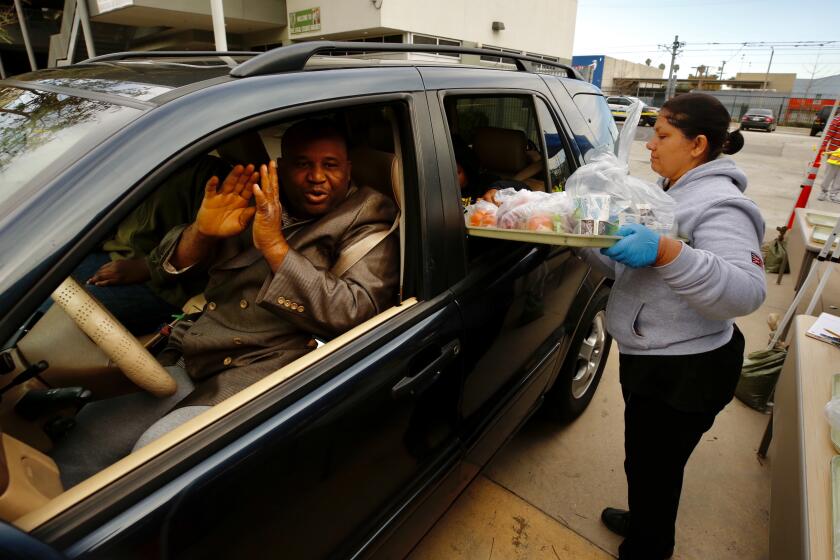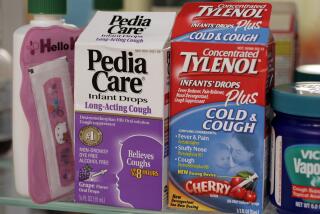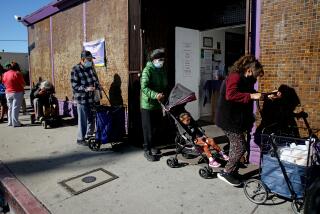The line at this Costco begins at 2:55 a.m. as coronavirus spooks shoppers

- Share via
When Shannon Davis arrived at a Costco in Hawthorne on Wednesday, 2 hours and 15 minutes before its doors opened, the sun had not yet risen and about 30 people were already in line.
Davis, who lives and teaches in Lawndale, knows food and other essentials will not run out. That’s what her rational brain tells her. But those lines.
They trail out the doors and hug the walls of grocery stores and warehouse clubs, in Southern California and elsewhere in a nation gripped by a pandemic. Those lines worry Davis — and so she stands in them.
“The intelligent part of my mind tells me there are plentiful supplies,” she said. “But when you see these kinds of lines for basic supplies, it’s alarming. You become reactionary. I can’t process what the intelligent side of my mind is telling me.”
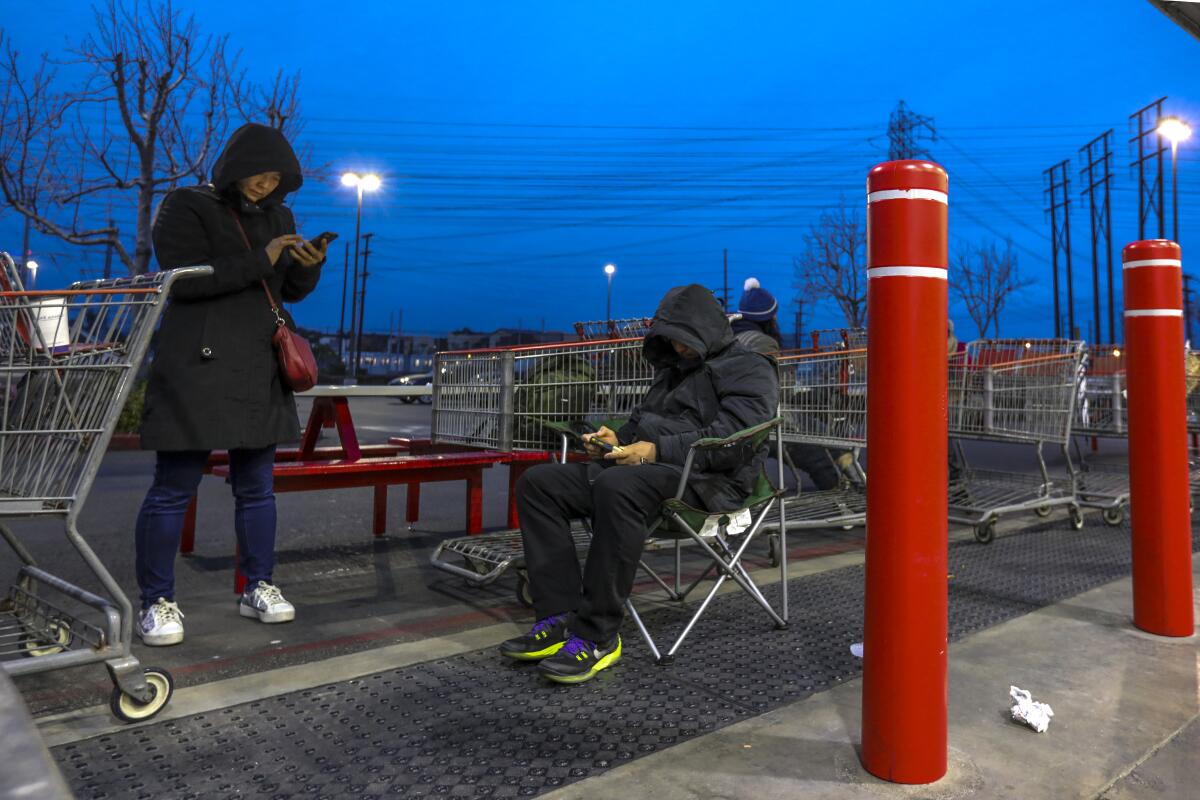
Los Angeles Mayor Eric Garcetti pleaded with residents on Monday to forgo “panic-buying” and promised that groceries and other necessities are in good supply. Panic-buying “has a consequence not just for you,” Garcetti said, “but for your loved ones, for grocery workers, and of course for those who are most vulnerable and who need food right now.”
Many stores are limiting the number of shoppers allowed inside at any one time and the quantities they can purchase of high-demand goods, like toilet paper, wipes and certain groceries. At the Costco in Hawthorne, a sign by the door limited shoppers to a single loaf of bread, one flat of eggs, one bag of rice, one gallon of milk and one package of instant soup.
Pictures of emptied shelves and serpentine lines are being circulated on social media, aired on television and written about in news reports, and they are fanning the impression, some shoppers said Wednesday, that those who don’t buy now will have nothing to buy at all, if and when the pandemic worsens and social controls tighten.
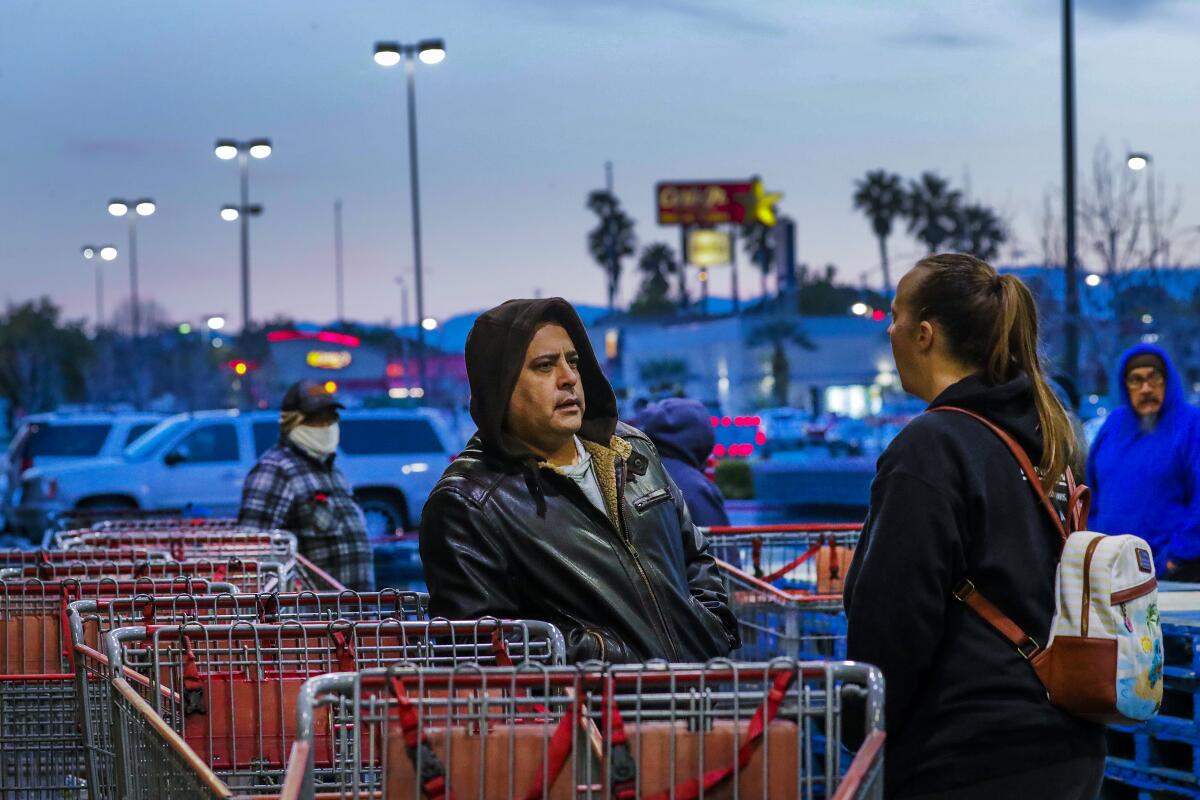
As people waited for the Costco in Hawthorne to open, the sun rose gradually, glinting off the train of carts that circled the cavernous warehouse, off the tired people clinging to them and trying to keep away from each other. Soon, the line would start to creep into the store.
“You know other people are doing it,” said Stefan Cabezas, who lined up at 5:30 a.m., 2 ½ hours before the store opened, “so you’re doing it as a precaution.”
“I see people grabbing five, 10 boxes of pasta off a shelf,” said Monica De Cuir, who took her place in line around the same time, “and I think, ‘I need pasta.’ And I have to stop myself and think, ‘No I don’t.’”
California’s nearly $50-billion agricultural industry is bracing for a potential labor shortfall that could hinder efforts to maintain the nation’s fresh food supply amid the widening coronavirus outbreak.
Cabezas and De Cuir were not the first to arrive at the store Wednesday morning, nor were they close to being the first. Ben and Mariam Cole claimed their spot by the door at 2:55 a.m., Ben Cole said. He had come to the store three days earlier at 4 a.m.
“We thought we’d at least be No. 5,” Cole said. “We were No. 20.” By the time they got in, the store was out of baby wipes they needed for their youngest son, who is 2, he said.
“You can say, ‘You don’t have to worry,’” Cole said of the admonishing from public officials against standing in lines, and of their assurances that essentials are in good supply. “But when I get to the store and there’s no toilet paper, there’s no hand sanitizer and cleaning materials, what am I supposed to do?”
Lee Caudle and his wife, Margaret, took a spot in line around 6 a.m. Wednesday after realizing they were low on toilet paper. Caudle was willing to wait several hours to get in the store, he said, because “we don’t know if we’re in the middle of the crisis or if it’s going to get a whole lot worse.”
One man wore plastic gloves and a face mask as he pulled up in a pickup to receive school-packed meals for his children.
The Caudles said they were more concerned about running out of basic supplies than contracting the virus — a sentiment shared by Davis, the teacher from Lawndale.
“I think I can avoid the sickness by taking precautions,” Davis said. “Supplies, I have no control over that. My biggest concern is just not having resources at this point.”
More to Read
Sign up for Essential California
The most important California stories and recommendations in your inbox every morning.
You may occasionally receive promotional content from the Los Angeles Times.
